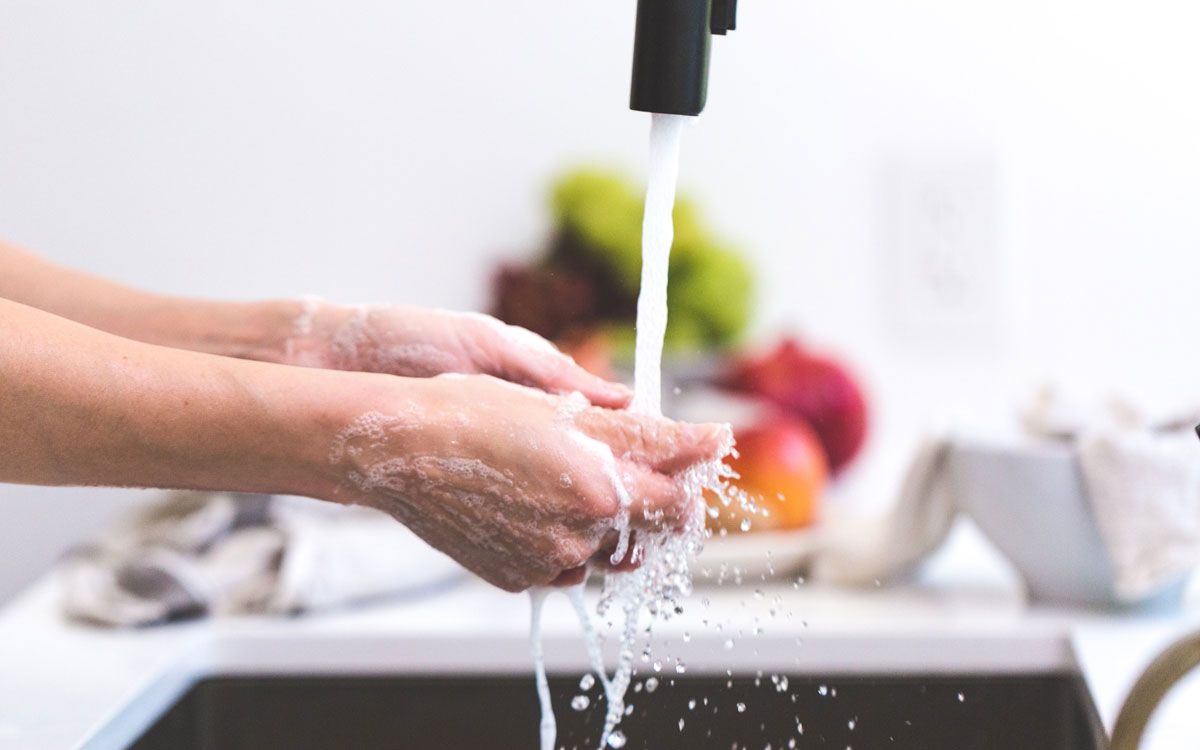




Food sanitation should be a primary concern in all kitchens, but ensuring safe and sanitary food service doesn’t end when the food leaves the kitchen. Waitresses, bar staff, food delivery drivers, and kitchen porters should all be aware of safety hygiene practices to ensure the best service.
That’s why, today, we’ll be discussing a number of ways restaurant owners can ensure safe and clean front-of-house service, meeting all health and safety standards and guaranteeing an enjoyable restaurant experience for everyone.
Personal cleanliness is the first place to start to ensure sanitation front of house. Contamination of food from poor hygiene practices is likely to be a sackable offence in your business, so preventing this is essential. Food hygiene law states that all food handlers must have a high standard of personal cleanliness, wear protective clothing and follow food hygiene rules.
Let’s start with the basics—always wash your hands. The general rule is the more frequently the better—especially before handling food.
To protect the food from any further bacteria you may be carrying on your hands or clothes, wearing protective clothing (if provided) is a legal requirement. Alternatively, wearing a clean uniform and footwear is a must to ensure your staff are well-presented. If your staff look their best, they’re likely to provide their best service, too.
From the order-taking notepad to the stylish granite worktops at the bar, all equipment should be cleaned properly—meaning all staff should be trained in proper cleaning procedures, and appropriate maintenance of equipment. This will create the best possible impression at the front of house, while ensuring your equipment won’t degenerate quicker than it should. On top of that, preventing loss of functionality will ensure service runs quickly, and will reduce risks of contamination.
The health and safety of staff and customers is at risk when equipment breaks down – but by training your staff to report any equipment that’s out of service, or reporting any faults, you can ensure that repairs or replacements can be arranged efficiently while maintaining the highest levels of sanitation.
To guarantee good hygiene control, front of house service should never handle food and money at the same time. Keeping food covered and away from the serving counter will prevent customers from sneezing and coughing on it, and will also maintain food freshness. Encouraging these positive habits front of house will reflect in customers’ impressions of sanitation behind closed doors.
Controlling cross-contamination risks should be upheld by all food handlers – and giving your staff training on microbiological, allergenic, physical and chemical contamination will ensure healthy and happy customers, leading to repeat business and excellent reviews.
From allergens to physical, chemical and microbiological hazards, understanding customer needs is essential to ensuring sanitation and providing first-class service front of house. As so many food hazards exist, there are numerous risks when it comes to cross-contamination.
Educate your staff on the risks associated with these hazards, and the severity of the consequences in the event of negligence, so that customer needs are always at the forefront of service. Ensuring sanitation front of house by paying attention to customer requirements should always be prioritised. It’s important your staff are well-informed on foods containing any ingredients that may pose a hazard to customers, and readily able to provide customers with this information during service to prevent any dangerous exposure.
For food handlers, it’s essential to be aware of best practices when it comes to complying with food hygiene rules and regulations.
All raw and high-risk foods should be stored separately, and out of the temperature danger zone, while work surfaces where raw meat and poultry have been handled should be cleaned immediately afterwards. When it comes to maintaining a high standard of general cleanliness, worktop surfaces and equipment should never be neglected.
Habits for your front of house staff to get into could include keeping wiping cloths used in raw food areas out of other areas to prevent cross-contamination—remembering to always work with a clean cloth, and disinfect all cloths regularly. Disposable cloths offer a suitable alternative if this is preferred, which again will help to keep contamination to an absolute minimum. Remember: a cloth is only as clean as the last place wiped.
Front of house staff sanitation ensures customers gain a positive experience, which encourages their return and helps you to build an enviable reputation for your business. Word of mouth is one of the most powerful forms of advertisement, and a considered approach to sanitation could directly influence the words that come to define your establishment.
Sophie Armstrong is a content creator for granite and quartz worktop specialists Burlington Granite, who provide a full bespoke worktop solution by offering templating, cutting, polishing and fitting, all driven by 25 years of industry experience.










